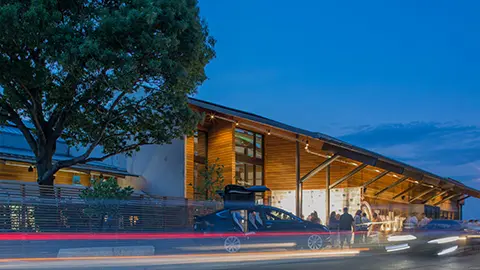Honda Will Be All Electric by 2040
Big changes are coming to the land of the rising sun. Honda Motor Co. is the first Japanese automaker to publicly promise that it will phase out its sales of gasoline-powered cars completely by 2040. This announcement gives new CEO Toshihiro Mibe a chance to put his stamp on a company that can trace its lineage back for 84 years.
The announcement could also offer a leg up for Honda in that Prime Minister Yoshihide Suga has pledged to achieve carbon neutrality by 2050 and firms with a first-mover advantage may capture market share. EV penetration in the nation is currently just one percent, well down from China, the world’s biggest market for electric cars, at around six percent.
This particular all-electric bet stretches far beyond Japans borders. Global sales of passenger EVs are set to rise sharply, jumping to 14 million in 2025 from 3.1 million in 2020, according to BloombergNEF. Honda, which gets about 56 percent of its revenue from North America and around one-quarter from Asia, has already begun aligning itself with powerful carmakers overseas. Most notably, Honda landed a deal last year to use General Motor’s battery technology.

Honda's Electric Strategy
Honda’s electric strategy also includes its traditional strength in motorcycles. Honda plans to unveil three new electric two-wheelers by 2024, as well as ten new EV cars in China within five years. While motorcycles only represent around 14 percent of Honda’s total revenue, their sales volumes are much greater. Honda is selling around 15 million bikes a year versus around 4.5 million cars. Electric cycles are predicted to sell 78 million units in 2040, up from 27 million in 2020.
In March, Honda formed a consortium with Yamaha Motor Co., KTM AG and Italy’s Piaggio & C SpA to develop swappable battery standards for electric two-wheelers, tricycles and quadricycles as the fall in global lithium-ion battery prices lures high-volume manufacturers further into the motorcycle market.
“We can’t postpone making an effort and then expect to reach the target at the last minute,” said Mibe, although he did note that selling only zero-emission vehicles by 2040 will “be an uphill struggle.”

Is Honda's Electric Strategy Realistic?
Critics of Honda’s strategy wonder whether the goal is realistic. Bigger players like Ford Motor Co. aren’t expecting to be 100 percent carbon neutral until 2050 while Toyota Motor Corp. sees hybrids playing a much more important role. It’s a short-term tactic to grab stakeholder attention as the focus around environmental, social and corporate governance picks up, said Takeshi Miyao, an analyst at Carnorama.
For Honda to position itself in the market it had to say something different from Toyota, he said. “Honda had no choice but to unveil a plan that’s almost opposite to appeal to investors. It’s no use saying the same thing,” Miyao said.
Mibe isn’t one to shy away from a challenge. A 34-year veteran of the automaker, he’s spent a great deal of his time running R&D efforts at Honda, focused on striking the balance between innovation and commercialization.
Honda’s electric push boils down to “how fast we can make the EV business profitable,” the CEO said to the automotive press earlier this year. “Companies that do it fast will survive.”
Explore the newest electric cars using our GreenCars Buyer's Guide.













